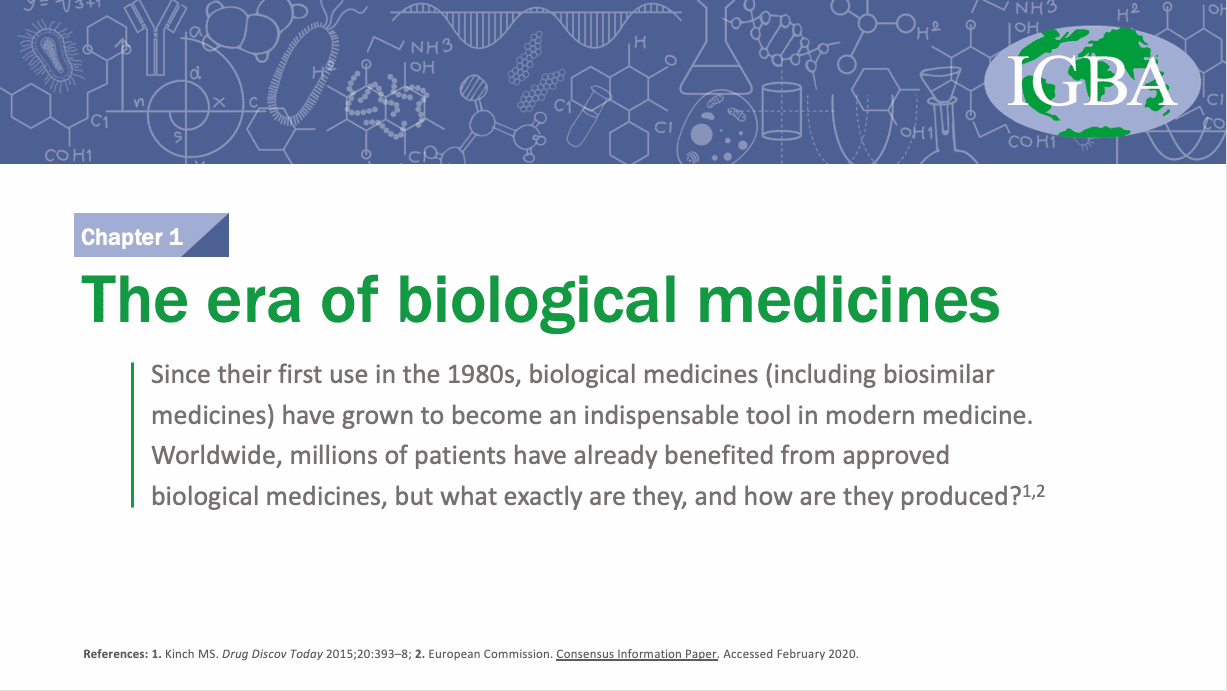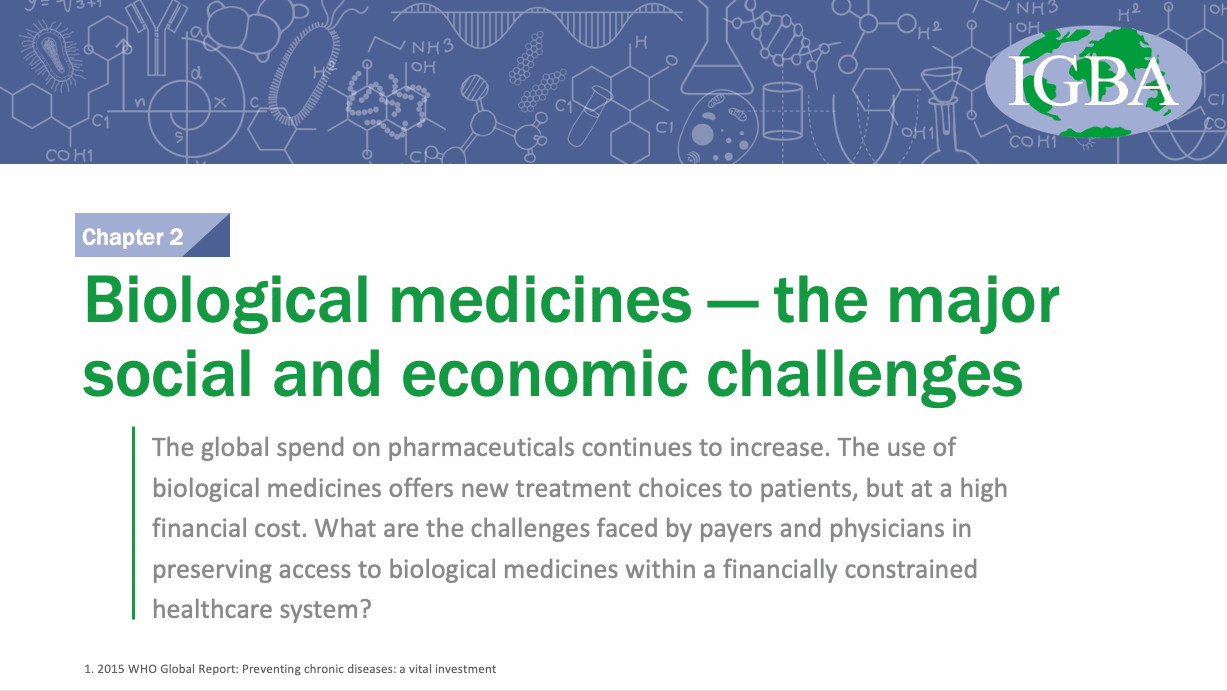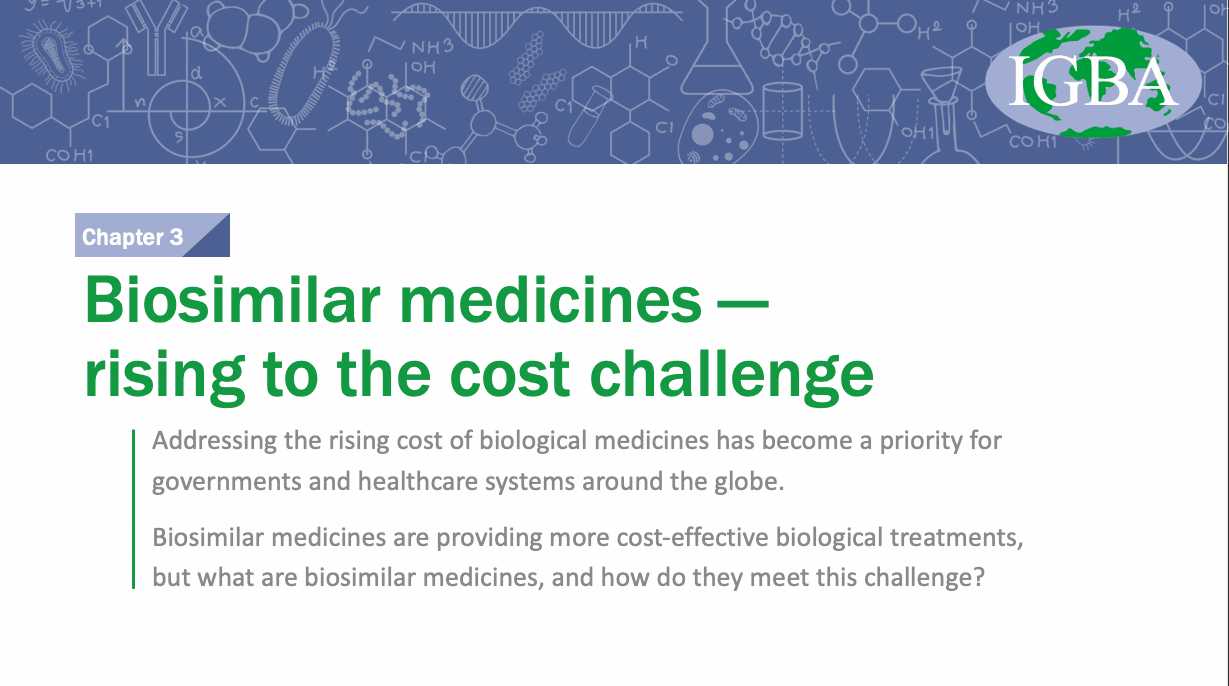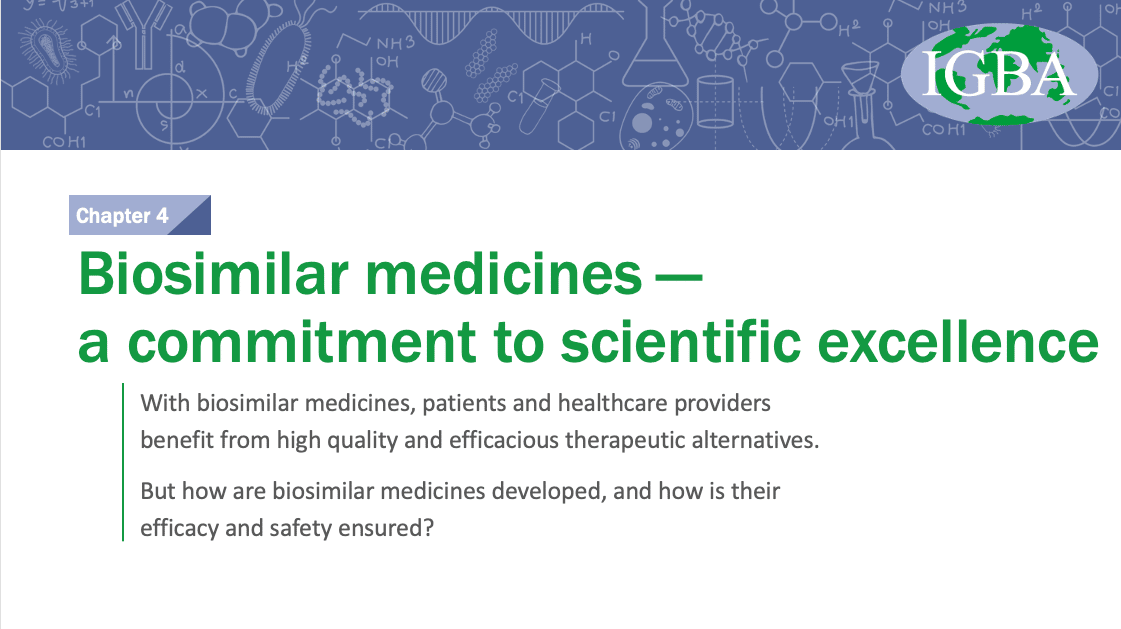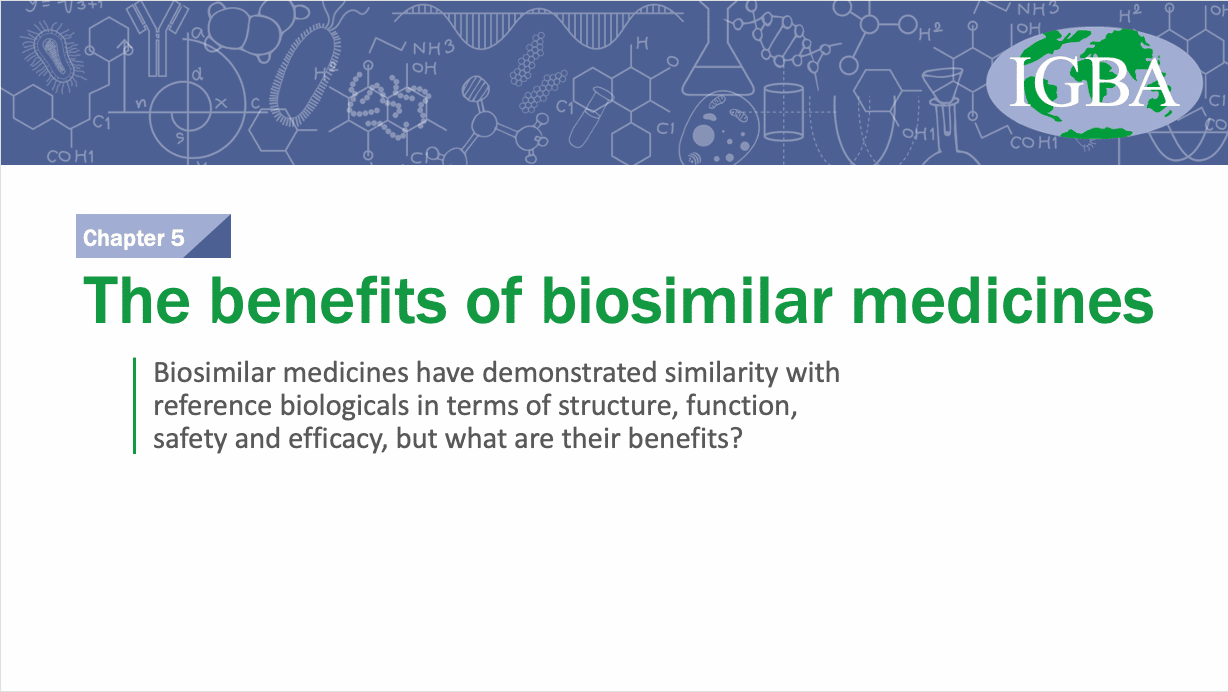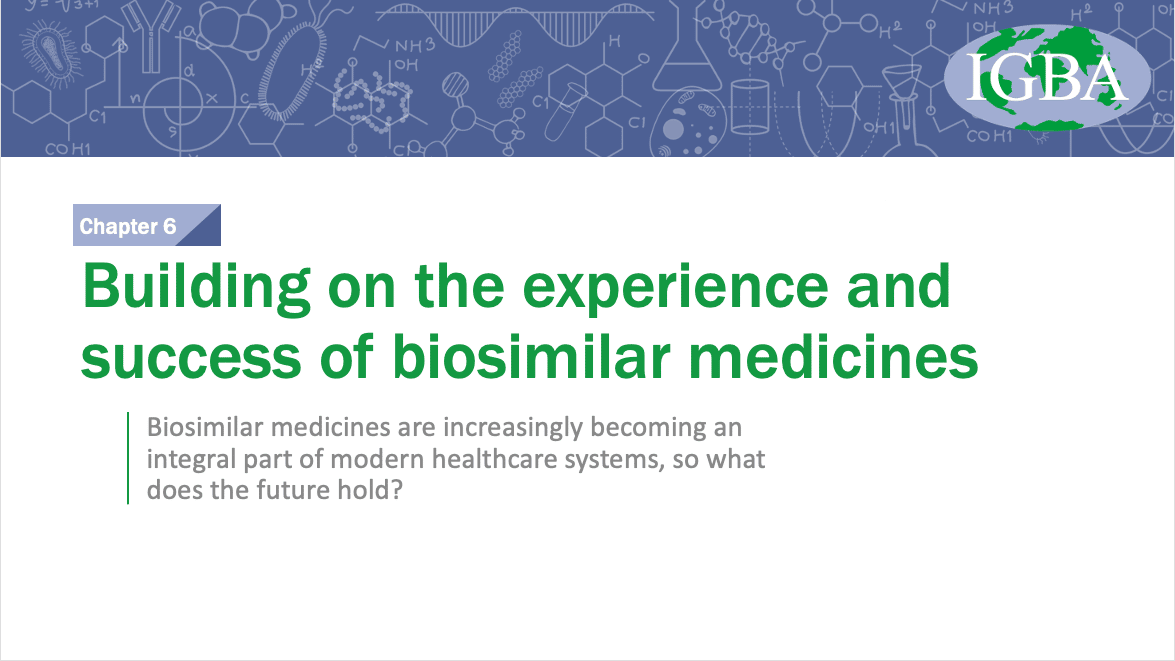Biosimilars 101
Welcome to Biosimilars 101
Overview
Since their first use in the 1980s, biologic medicines have grown to become an indispensable tool in modern medicine. Advancements in biologic research and development have pushed the frontiers of science, bringing life-saving treatments to patients suffering from deadly diseases, such as cancer. Biologic therapies have also helped patients make great strides in managing chronic diseases including multiple sclerosis, diabetes, rheumatoid arthritis and Crohn’s disease.
Biologics are innovative treatment options for patients affected by debilitating and life-threatening diseases; however, they are often associated with high costs and limited patient access. Fortunately, more affordable options for many patients who rely on biologic treatments are beginning to enter the market: biosimilars.
A biosimilar is a biologic medicine that is highly similar to a previously approved reference biologic currently on the market. Biosimilars are important because they have an opportunity to provide competition in the market and expand patient access to critical medicines, much like the advent of generic medications more than 35 years ago.
Biologics are medicines extracted from a variety of natural sources—human, animal or microorganism—and include a wide range of products such as vaccines, blood components, gene therapy, tissues and recombinant therapeutic proteins. In contrast to traditional small-molecule prescription drugs that are chemically synthesized, biologics are large-molecule products that involve complex research, development and manufacturing processes.
Biologics represent the cutting edge of biomedical research and often offer the most effective treatment for such serious and life-threatening conditions as cancer, HIV/AIDS, rheumatoid arthritis and heart disease. However, biologic medicines can cost thousands of dollars per treatment, keeping them out of reach for many patients.
A biosimilar is a safe, effective and less-costly biologic medicine that is highly similar to a previously approved biologic medicine (known as a “reference product”) currently on the market. Biosimilars have scientifically comparable quality, safety and efficacy to their reference product. Biosimilars are important because, much like generic drugs, they have an opportunity to create competition in the market and expand patient access to critical medicines.
Like a biosimilar, an interchangeable biologic product is highly similar to a Food and Drug Administration (FDA)-approved reference product and meets additional standards for interchangeability. An interchangeable biologic product may be substituted for the reference product by a pharmacist without the intervention of the health care provider who prescribed the reference product, in line with how most patients currently receive generic medicines.
Learn more about biosimilars
The Biosimilars Council is a member of the International Generic and Biosimilar Medicines Association (IGBA) – an industry association committed to promoting generic and biosimilar medicines, and exchanging information worldwide.
Below, you will find six educational chapters that walk through the history, benefits and real-life examples of biosimilars. While you are free to jump around, we recommend starting at the beginning and working your way through – allowing the IGBA to tell you an important story.
